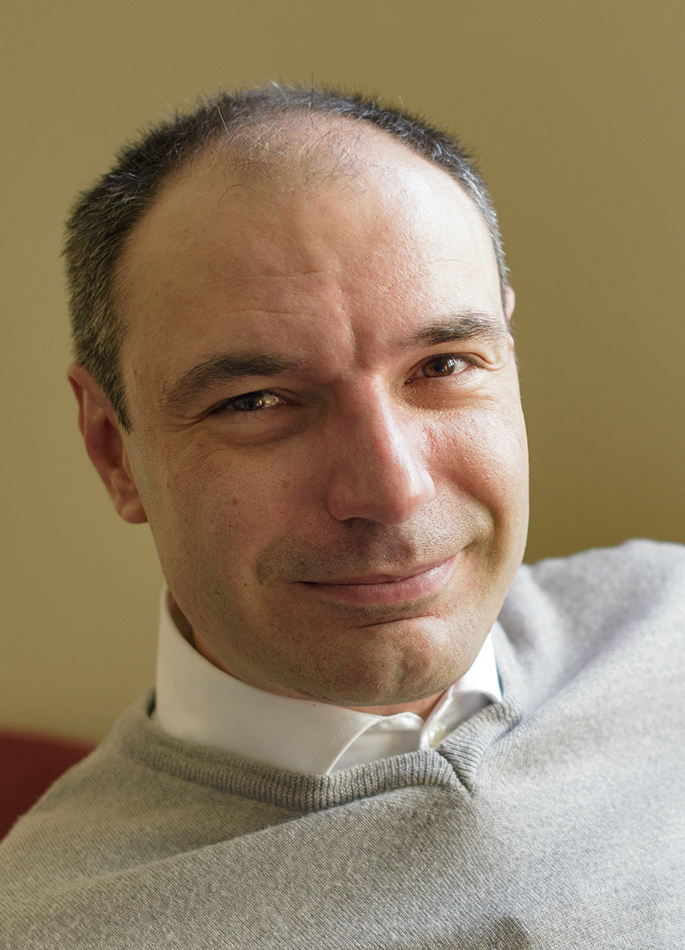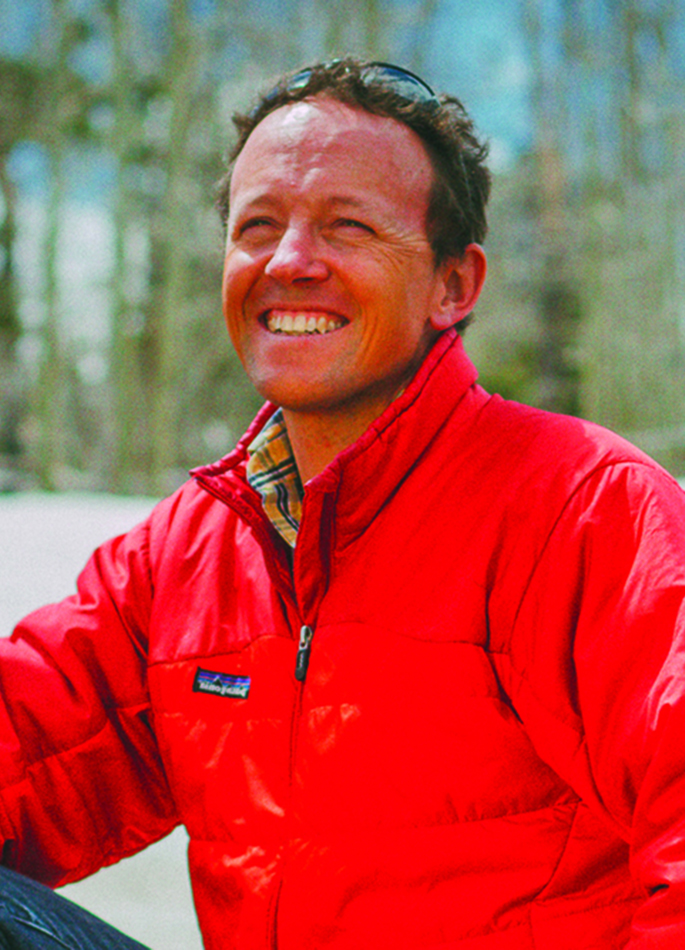Geology & Geophysics
 Dr. Dario Grana, (M.S. and Ph.D., Geophysics, Stanford University), SER Professor of Geology and Geophysics and Wyoming Excellence Chair. Dr. Grana’s research areas of interest include modeling, characterization and interpretation
of subsurface reservoirs for energy resources exploration and production, using geophysical
methods. Reservoir geophysics aims to estimate rock and fluid properties to quantify
energy resources volume and productivity. Dr. Grana’s research also includes time-lapse
modeling of rock and fluid properties changes for reservoir monitoring to update the
reservoir model and estimate the dynamic variations of geological properties and processes.
Dr. Grana applies innovative modeling methods to hydrocarbon and CO2 sequestration
studies to predict the fluid behavior in the subsurface, to optimize production, and
to reduce the probability of leakage. Dr. Grana’s research has been applied in several
case studies all over the world, including a CO2 sequestration project in Southwest
Wyoming and a CO2 feasibility study in Norway. Dr. Grana’s research results improved
the accuracy of the predictions and reduced the uncertainty, which allowed reducing
the operation risks. The recent research conducted by Dr. Grana and the application
to CO2 sequestration provided a valuable contribution in the development of strategies
for carbon dioxide reduction. Throughout his career, Dr. Grana published more than
100 papers and gave more than 30 invited talks. In April 2021, Dr. Grana also released
a new book, “Seismic Reservoir Modeling” with Prof. Tapan Mukerji and Dr. Philippe
Doyen published by Wiley Blackwell. Dr. Grana currently teaches four classes at the
University of Wyoming: an undergraduate level class on the basic concepts of exploration
geoscience, two undergraduate classes on mathematical methods for geoscience, and
a graduate seminar on diversity and inclusion in geosciences. Dr. Grana’s classes
at the University of Wyoming contribute to the formation of the new generation of
scientists, including geologists, geophysicists, and petroleum engineers who aim to
work in the energy sector.
Dr. Dario Grana, (M.S. and Ph.D., Geophysics, Stanford University), SER Professor of Geology and Geophysics and Wyoming Excellence Chair. Dr. Grana’s research areas of interest include modeling, characterization and interpretation
of subsurface reservoirs for energy resources exploration and production, using geophysical
methods. Reservoir geophysics aims to estimate rock and fluid properties to quantify
energy resources volume and productivity. Dr. Grana’s research also includes time-lapse
modeling of rock and fluid properties changes for reservoir monitoring to update the
reservoir model and estimate the dynamic variations of geological properties and processes.
Dr. Grana applies innovative modeling methods to hydrocarbon and CO2 sequestration
studies to predict the fluid behavior in the subsurface, to optimize production, and
to reduce the probability of leakage. Dr. Grana’s research has been applied in several
case studies all over the world, including a CO2 sequestration project in Southwest
Wyoming and a CO2 feasibility study in Norway. Dr. Grana’s research results improved
the accuracy of the predictions and reduced the uncertainty, which allowed reducing
the operation risks. The recent research conducted by Dr. Grana and the application
to CO2 sequestration provided a valuable contribution in the development of strategies
for carbon dioxide reduction. Throughout his career, Dr. Grana published more than
100 papers and gave more than 30 invited talks. In April 2021, Dr. Grana also released
a new book, “Seismic Reservoir Modeling” with Prof. Tapan Mukerji and Dr. Philippe
Doyen published by Wiley Blackwell. Dr. Grana currently teaches four classes at the
University of Wyoming: an undergraduate level class on the basic concepts of exploration
geoscience, two undergraduate classes on mathematical methods for geoscience, and
a graduate seminar on diversity and inclusion in geosciences. Dr. Grana’s classes
at the University of Wyoming contribute to the formation of the new generation of
scientists, including geologists, geophysicists, and petroleum engineers who aim to
work in the energy sector.  Dr. Bryan Shuman
Dr. Bryan Shuman
Dr. Bryan Shuman (Ph.D. and Sc.M. in Geological Sciences, Brown University), Professor and Wyoming Excellence Chair in Geology and Geophysics at the University of Wyoming (UW). Shuman has taught at UW since 2007 and uses geological evidence to examine how past climate changes affected water and ecosystems. A central theme of his research is reconstructing the temperature, precipitation, and vegetation history of North America since the last ice age based on evidence from lake sediments. The work uses fossils, physical sedimentology, geophysics and geochemical techniques to determine the full spectrum of natural climate variation, evaluate climate model projections about the past, gain insight into how water and ecosystems respond to climate change, and provide context for the archeological record. Recent projects have examined the histories of wildfire and the snowpack in the Rocky Mountains over past millennia to anticipate climate impacts on society and landscapes today. Shuman has written over 120 peer-reviewed scientific publications on related topics. He has also built upon this research background to co-lead the 2021 Greater Yellowstone Climate Assessment and to serve as one of the principal investigators leading the NSF-funded, $20 million WyACT (Wyoming Anticipating the Climate Transitions) project. He also heads UW’s Roy J. Shlemon Center for Quaternary Studies focused on Earth’s most recent geological history and has served in leadership roles in the the American Quaternary Association, the Ecological Society of America, and DOSECC (Drilling, Observing, and Sampling Earth’s Continental Crust). Past awards include the William S. Cooper Award from the Ecological Society of America, the Henry C. Cowles Award from the American Association of Geographers, and an NSF CAREER grant. He was previously a tenured faculty member at the University of Minnesota and a NOAA Climate and Global Change post-doctoral fellow at the University of Oregon. Shuman also feels fortunate to have hiked across Wyoming and adjacent states along the Continental Divide among other adventures.

